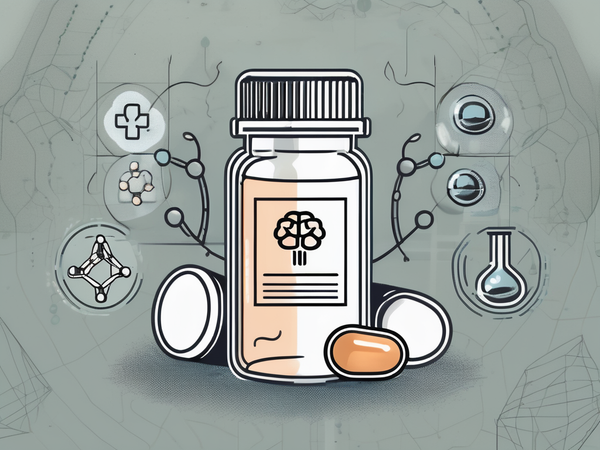Do you know that your sleep is primarily affected by a hormone in your body called melatonin? It is the main hormone responsible for our body’s sleep-wake cycle. As the sun goes down, and the evening starts falling, the production of melatonin in our body increases, thereby promoting a healthy circadian rhythm and thereby good sleep. Let’s try to understand how melatonin works for our sleep in this article.

What is Melatonin?
Melatonin is a hormone that is naturally produced inside your body, by the pineal gland in your brain. It is also found in other parts, such as the eyes, gut, and bone marrow. Often known as the ‘sleep hormone’, melatonin does not work by knocking you out into a peaceful slumber, but rather it sends the signal to your body that it’s nighttime and thereby starts relaxing your body to sleep easier. Melatonin is also a very powerful antioxidant that can help support eye health, treat heartburn, decrease tinnitus symptoms, and increase the growth hormones in men.
How Does Melatonin Work for Sleep?
What melatonin basically does is improve your circadian rhythm, which is your body’s internal sleep-wake clock. It allows you the information regarding when to sleep, eat, and wake up. After all, a good night's sleep plays a very important to improve your health.
Benefits of Melatonin
Melatonin provides your body with various functions, like it helps you with your blood pressure, hormone levels, and body temperature. But mainly, it signals your body to sleep when it starts getting dark outside - melatonin binds the receptors in your body that help you relax. It binds these brain receptors that reduce nerve activity and also reduce the levels of dopamine in your body. Dopamine is a hormone that keeps you up during the night.
People who do not produce enough melatonin at night are more likely to face trouble falling asleep. There can be many reasons why the body doesn’t prepare enough melatonin, these can include smoking, blue light exposure before bedtime, stress, working in changing shifts, and aging among other things.
Melatonin Supplements
With the recent shift in lifestyles and the changing sleeping patterns, there has been a boom in the melatonin supplements market. These supplements help to treat sleep disturbances and improve your overall health.

These supplements come in various forms like gels, capsules, and chewable. There are two types of these melatonin supplements available in the market - one are your natural kind, extracted from the pineal gland of animals and the other being synthetic, made using scientific methods. When taken in the right dosage, they help in promoting sleep and mitigating any sleep disturbances.
You should always consult your doctor before adding any supplements to your diet.

Final Takeaway:
Sleep is very important for your overall health and wellbeing. People who do not produce sufficient melatonin at night, find it difficult to fall asleep. While there are many ways to regulate your sleep cycle naturally, you can try out Well being Nutrition’s Restful Sleep Melts.
It has been formulated to aid the natural process of the body to fall asleep and contains plant-based melatonin, which consists of Asian rice, Alfalfa, the leaves and roots of Chlorella Pyrenoidosa, along with other important nutrients like chamomile, l-theanine, passion flower, valerian root, and vitamin B-6, to support the body in being more receptive to melatonin, the sleep hormone.
References:
- Melatonin and Sleep, Sleep Foundation, (https://www.sleepfoundation.org/melatonin)
- Insufficient Sleep Syndrome: Is it time to classify it as a major noncommunicable disease?, Vijay Kumar Chattu, Sateesh M. Sakhamuri, Raman Kumar, David Warren Spence, Ahmed S. BaHammam, and Seithikurippu R. Pandi-Perumal, Sleep Science Journal, 2018, doi: 10.5935/1984-0063.20180013, (https://www.ncbi.nlm.nih.gov/pmc/articles/PMC6056073/)
- Melatonin: Countering Chaotic Time Cues, Josephine Arendt, Frontiers in Endocrinology, 2019, doi: 10.3389/fendo.2019.00391, (https://www.ncbi.nlm.nih.gov/pmc/articles/PMC6646716/)
- Melatonin, Rosemary A. Savage; Nowera Zafar; Sandesh Yohannan; John-Mark M. Miller, Stat Pearls, (https://www.ncbi.nlm.nih.gov/books/NBK534823/)

























